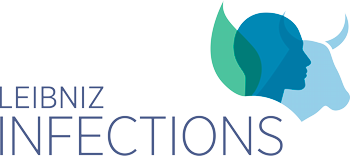Clostridioides difficile is a bacterium that occurs worldwide in the intestines of humans and animals. If the composition of the intestinal flora is out of balance, e.g. due to the intake of medication, these pathogens can become rampant. The toxins excreted by the bacteria then lead to sometimes severe intestinal inflammation, which can be fatal.
The inflammation is usually treated by administering an antibiotic that is effective against C. difficile. Three different antibiotics are currently recommended for this treatment: vancomycin, fidaxomicin or metronidazole (the latter in exceptional cases). In the last 25 years, however, the frequency of mutations has increased, which leads to a decreased susceptibility to these drugs and thus reduces the success of the therapy.
In a recent study, Baban Kolte, PhD student in the Leibniz Research Network INFECTIONS, examined over 26000 genome sequences from C. difficile isolates, collected in 56 countries from all continents between 1980 and 2023, and determined the frequencies and clonal distributions of genetic determinants that had previously been reported to be associated with decreased susceptibility to antibiotics.
The results were published this week in the Journal of Antimicrobial Chemotherapy and suggested that resistance to antibiotics in C. difficile is rare. The majority of mutations and plasmids analysed were detected in <0.1% of all C. difficile genome sequences. Notable exceptions were two mutations: The PnimBG mutation, which occurred in 52% of all genome-sequenced isolates in 2007, and the vanR-p.T115A mutation, which peaked at 10% in 2005. The incidence of both mutations has fallen sharply in many countries in recent years. The reason for this success could lie in the far-reaching measures taken to contain the epidemic of C. difficile infections in the healthcare sector.
Publication:
Baban Kolte, Ulrich Nübel, Genetic determinants of resistance to antimicrobial therapeutics are rare in publicly available Clostridioides difficile genome sequences, Journal of Antimicrobial Chemotherapy, 2024;, dkae101, https://doi.org/10.1093/jac/dkae101
Contact:
Prof. Ulrich Nübel
Head of Department Microbial Genome Research
Leibniz Institut DSMZ - Deutsche Sammlung von Mikroorganismen und Zellkulturen GmbH
Inhoffenstr. 7 B, 38124, Braunschweig, Lower Saxony, Germany
Email:

